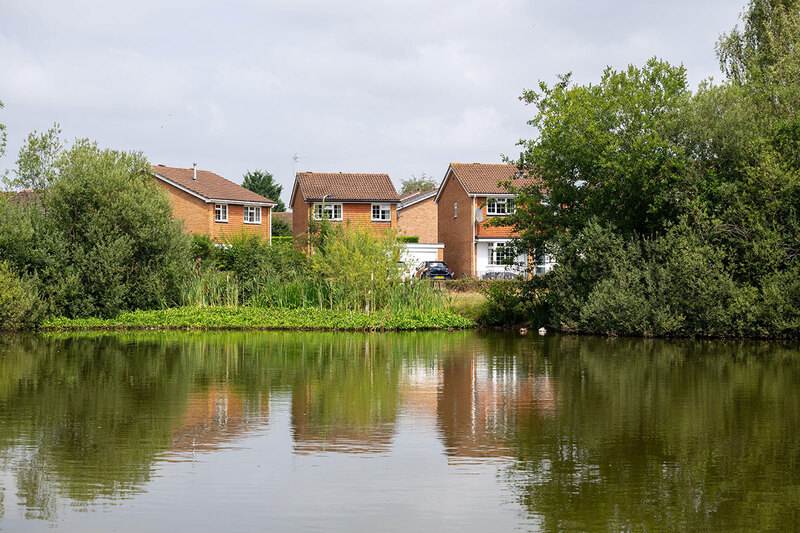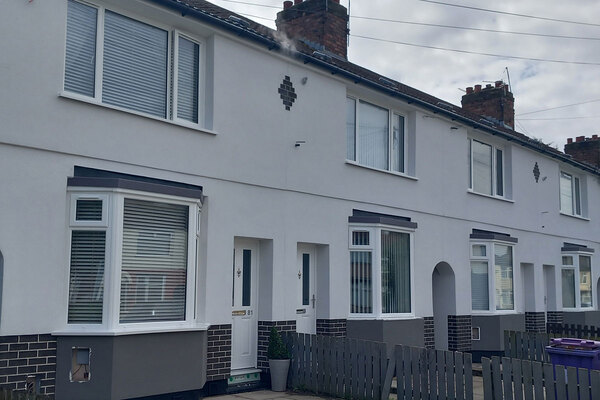Environment Bank founder calls for Biodiversity Net Gain to shift off-site
The founder of Environment Bank has called for the delivery of the Biodiversity Net Gain (BNG) policy to shift off-site.

Professor David Hill argued in a report that switching the emphasis from on-site to off-site BNG is “better for biodiversity and cheaper for the developer”.
He founded Environment Bank, which sells off-site BNG credits to developers, in 2006 but is no longer with the company.
BNG policy was implemented under the Environment Act 2021 and came into force last year. It requires all developments to achieve a 10% improvement in biodiversity on their sites to receive planning permission.
There is currently a preference for on-site delivery. If developers cannot do this on their own sites, they must buy biodiversity units under long-term agreements from landowners restoring or creating habitats elsewhere.
The report assessed the comparative value of on-site BNG against delivering BNG off-site on specifically created and managed areas of land in the wider countryside.
It argued that on-site BNG is typically delivered in small, fragmented and disturbed areas, offering very limited biodiversity uplift. Off-site BNG would be delivered on larger, better-connected sites with professional management and long-term funding enabling more meaningful and measurable ecological outcomes.
The costs of delivering 10% of the total BNG requirement on-site are substantial, at about four times the cost of delivering all the BNG requirements off-site, and on-site BNG could add a cost between £12,000 to £15,000 per house, while off-site BNG could add a £3,000 cost.
On-site BNG is also rarely monitored or enforced, and off-site BNG is secured through legal agreements and subject to formal oversight offering greater certainty.
The government’s expectation is that more than 50% of BNG would be delivered off-site, but no more than 10% is currently being delivered off-site. Increasing this would drive a private market for nature, enhance the UK’s leadership in nature finance and boost delivery against the target to restore 500,000 hectares of nature by 2030.
The report also said that the BNG policy’s original objectives, including faster development, facilitating growth and contributing substantial funding into nature restoration at limited cost to the developer, is being hampered by the preference for on-site delivery.
It said that 90% of BNG is being delivered by developers within the boundary of the development site, where its contribution to effective nature restoration is ‘severely challenged’ and the unit costs of delivery are ‘far in excess’ of off-site delivery, if land costs and profit foregone are properly accounted for.
The report also said that land providers for large-scale habitat restoration sites are at ‘severe risk’ of having their land assets stranded – and that the entire market for BNG units is at ‘significant risk’ of drying up rapidly, halting the country’s green finance ambition.
It added that as the world’s first compliance market for biodiversity, failure would curtail interest in the global biodiversity restoration market.
The report recommended that the government remove the sequential preference by the local planning authorities for on-site BNG and enable developers to purchase off-site units from professionally managed habitat bank. This would unlock larger scale nature restoration, reduce costs and complexity for developers and accelerate house building.
It also recommended local planning authorities promote off-site BNG through local plans, development management and local nature recovery strategies.
Local planning authorities should be held more accountable for monitoring and enforcing on-site BNG, and they should be given the necessary tools to monitor and enforce its on-site delivery to ensure delivery and rectify failures.
On-site BNG must meet the same standards as off-site delivery including transparent registration, secured 30-year funding and professional management – both adhering to the Derea/BSI nature standard.
The central government should also review and enhance consistent public messaging around BNG, particularly its benefits for biodiversity and for society.
Jason Beedell, rural research director at Strutt & Parker, said: “The change is a win-win-win.
“It benefits home buyers, by reducing the cost of BNG by four-fold as a proportion of the cost of buying a house.
“It benefits developers, by reducing the cost to them of complying with the policy by 30-fold and increases the number of houses delivered on valuable development sites.
“And it will benefit nature, by there being more wildlife habitat created and managed specifically for that purpose.”


